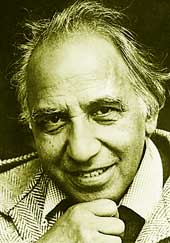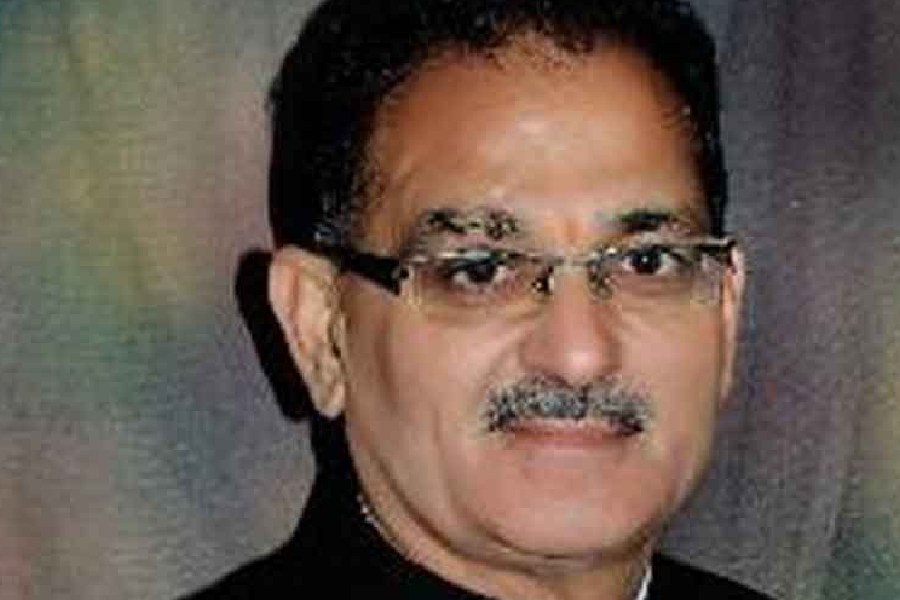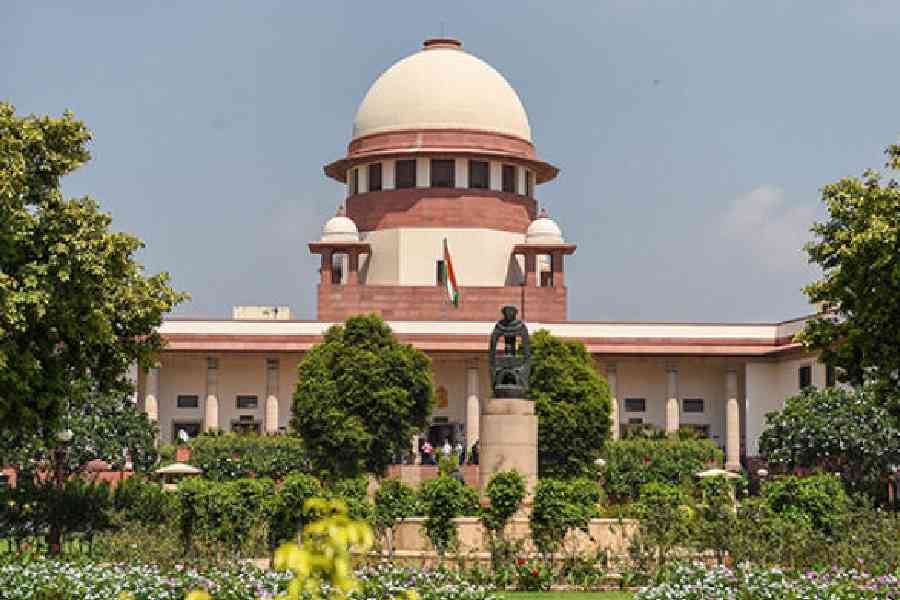|
|
| Gargi: true to his taste |
A sixty-year-old friendship ended on April 22. Balwant Gargi, who I had befriended in my Lahore days, died in Mumbai. His body was flown to Delhi to be cremated. Among Punjabi litterateurs who were present was I.K. Gujral; the film world was represented by Anupam Kher. Unfortunately, only Punjabi papers carried tributes to the versatile genius because besides two or three books, he wrote mostly Punjabi in Gurmukhi script.
Balwant was a bania from Bhatinda. He moved to Lahore, which was once the centre of Punjabi writing. He made his name as a playwright, director and a writer of satires: his profiles of well- known writers were full of acid wit. After Partition he moved to Delhi where he acquired a tiny, one-room ground-floor apartment. He entertained friends in his bed-cum-sitting-cum-dining room. The room had no furniture and all his guests had to sit or sprawl on the floor while drinking or eating. Only a few people were privileged to be invited to his home. Though a podgy, flabby bania, forever washing his hands with invisible soap, he had an eye for beautiful women with a marked preference for Sardarnis. I often chided him “You have this chaska (taste) for Sikh women; I suspect because only Sikh women can read you in Gurmukhi script.”
I persuaded him to try his hand in English to widen his circle of admirers. He did. His work on the Indian theatre was well-received. He was invited by the Washington State University (Seattle) to reach courses in drama. For the first time, he came into some money. He returned with a large car and a pretty American wife, Jeannie. They moved to Chandigarh where he was appointed professor of Dramatics. Everyone who met Jeannie fell in love with her. But she remained loyal to her husband. Her only shortcomings were her enormous appetite for food, and her refusal to learn Punjabi. Though she gave Balwant two lovely children, a boy and a girl, she refused to learn Punjabi and was unable to give Gargi the praise he hankered after. So he turned to others, including an attractive divorcee who was one of his students. Needless to say, she was a Sardarni and had been his pre-marriage mistress. Jeannie divorced him, married another Indian and returned to the States, taking her daughter with her. Balwant was left with his son and a wayward mistress. When she ditched him for another man, he took revenge by writing an autobiographical novel in English, The Naked Triangle. It was a bad novel written with bitterness. Instead of gaining more admirers, he lost some he had.
Balwant Gargi sensed his end coming four years before it came. He rang me up from Patiala to thank me for all I had done for him. It was uncalled for because I had done little besides lending him money when he was hard up (he always returned it) and advising him to write in English. I ticked him off: “What’s the matter with you?” and “You owe me nothing; we are old friends.” He knew he was stricken with Alzheimer’s and would soon lose his memory. He spent his last years with his actor son in Mumbai, being looked after by a faithful servant and a lady friend, a Sardarni.
Why question another’s faith
On the morning of April 19, died 75-year-old Hazrat Mirza Tahir Ahmad, head of the Ahmadiya Muslim community, said to have members around 200 million. Ahmadiyas, also known as Qadianis, have been persecuted by fanatical Pakistani Muslims ever since their founder, Hazrat Mirza Ghulam Ahmed, proclaimed that he was the mahdi or messiah prophet Mohammed had promised would come after him. He rapidly acquired a large following in undivided Punjab. From its centre in Qadian (Indian Punjab), it gained followers in western Punjab, now in Pakistan with its main centre in Rabwah. As their numbers grew, orthodox mullahs raised a hue and cry condemning them as heretics. Ultimately, Pakistan’s parliament and the supreme court declared them non-Muslims. To this day, they are not allowed to call azaan before prayers and greet other Muslims, Assalaam Valaikum. Despite being persecuted in Pakistan, Ahmediyas have spread and are found in 172 countries of the world, including Israel.
I had the privilege of knowing many eminent members of the community: Chaudhary Sir Zafarullah Khan, Pakistan’s first foreign minister and his brother Asadullah Khan; Dr Mohammed Bashir, who was Lahore’s leading medical practitioner and his son, Rashid, now settled in England; Dr Abdus Salam, the first Muslim to win the Nobel Prize for Science, Parveen Talha, the seniormost Muslim in the Indian administrative service and a few others. I also had the privilege of spending an hour with Mirza Tahir Ahmed when he visited Delhi last time and was staying in the Ahmadiya mosque in Tughlaqabad. Of all Muslims I have known, there were none as strict in following the tenets of Islam as the Ahmadiyas. It is ironical that they should be the targets of Pakistani Muslim fanaticism. Has anyone the right to question another person’s faith? If Ahmadiyas describe themselves as Muslims, no one has the right to tell them “I am, but you are not.” That is why I, though a professional agnostic, keep warning my readers against the dangers of religious intolerance. Fundoos (religious fundamentalists) are much the same — be they Muslims, Christians, Hindus or Sikhs. Beware of bigotry in any shape or form.
Burden of the dead
Bush and Blair, have a flair
For doing things like mad
When one of them bombed Basra
The other pounded Baghdad
When all was rubble
Together did they babble
We won the war, the war.
Oh, look here buddy
Our face is muddy
And there’s a little scar.
But let’s not bother
If we stick together
We’re bound to go far
There’s oil in Syria
A potential area
To go and peg our tent.
Come, let’s hurry
Just kill and bury
Or we’d ever repent.
“What would they say?”
That’s not the way
To worry your head about
If one does murmur
Others would concur
If together we shout.
So let’s make merry
Together we carry
Burden of the dead
If the conscience pricks
Play some tricks
Dole out jam with bread.
In the end, they’d understand
All was for good, all fair
And for long, sing a song
Long live Bush and Blair.
(Courtesy: J.R. Jyoti, Secunderabad)











